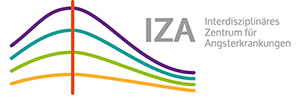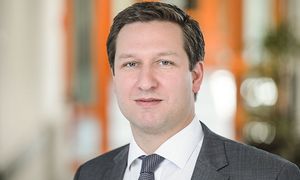Interdisciplinary, well-established, and modern
The center's three treatment facilities offer interdisciplinary therapy for every form of anxiety disorder in children, adolescents, and adults. If required, in addition to experts in psychiatry, psychology, child psychiatry, or pedagogy, doctors in neurology and internal medicine also work together on individually tailored therapy concepts. These are based on tried and tested, standardized procedures such as psychoeducation, behavioral therapy, medication, or stimulatory procedures , but also use new approaches such as the use of virtual reality or smartphone apps for monitoring progress.
Developing innovative therapies
In addition, we are developing new therapeutic procedures and working to improve established methods, especially to help patients for whom standard therapies are not sufficient. Within the framework of several clinical trials , we offer suitable probands the opportunity to receive innovative therapies.
University outpatient clinic: Psychotherapy in accordance with the guidelines
Psychotherapy that is approved and paid for by health insurance companies is called “guideline psychotherapy”. Patients can receive this kind of outpatient psychotherapy at the university outpatient clinic. It usually takes 18-24 months and consists of 26 appointments at intervals of two to four weeks. There is also the possibility of participating in clinical trials, in which we evaluate innovative treatment approaches such as intensive short-term therapies.
PPP: Covering outpatient and inpatient care
Depending on the severity of the anxiety disorder, the Department of Psychiatry, Psychosomatics and Psychotherapy (PPP) offers therapeutic programs of varying intensity.
Psychoeducation in the outpatient clinic
In five appointments over three weeks, patients receive information about causes, triggering stimuli, symptoms, and treatment options as well as how to deal with the anxiety disorder. If necessary, a guideline psychotherapy in the university outpatient clinic, or further appointments in the PPP's anxiety outpatient clinic can follow.
Therapy program of the day-care center
The inpatient treatment in the day-care center lasts four to eight weeks and comprises a therapy concept consisting of cognitive behavioral therapy, practical assistance in coping with everyday life, and participation in psychoeducation groups.
Inpatient behavioral therapy
Inpatient treatment, which usually lasts four to eight weeks, is recommended in acute crises, when the level of anxiety is very high, and when there are considerable impairments in coping with everyday life. The therapy concept at the behavioral therapy ward 5-East consists of closely knit and specialized psychotherapy, psychoeducation, and behavioral therapy units, supported by medication if necessary.
The PPP also offers the possibility to participate in trials evaluating new treatment options.
KJPPP: Therapy concepts for children and adolescents
For children and adolescents, the Department of Child and Adolescent Psychiatry, Psychosomatics and Psychotherapy (KJPPP) similarly offers outpatient, day-care, and inpatient therapy concepts.
Coping with everyday life through behavioral therapy
Psychotherapeutically, our focus lies on methods of cognitive behavioral therapy . Patients receive specific exercises for overcoming anxiety and practice the constructive processing of negative thoughts. Therapy is very much oriented towards everyday life and incorporates the family and the environment. For example, if children are unable to attend school due to their anxiety, school attendance must be practiced step by step.
Analysis of the stress situation
Moreover, the therapy plan always considers possible stress and overstrain conditions, which are of individual importance for the development of anxiety. In some situations, when the condition is very severe, we also offer modern treatment with pharmaceuticals that have been clinically validated in terms of their effectiveness.
Contact
Prof. Dr. med.
Jürgen Deckert
Head of the Department of Psychiatry, Psychosomatics and Psychotherapy
+49 931 201-77000
Univ.-Prof. Dr. med.
Marcel Romanos
Clinic Director Child and Adolescent Psychiatry
+49 931 201-78000
Contact, Office Hours
Phone
Registration for outpatient treatment at the Department for Psychiatry for Psychiatry, Psychosomatics and Psychotherapy (PPP)
+49 931 201-77800
Registration in the university outpatient clinic
+49 931 3182839
Registration for outpatient treatment at the Department for Child and Adolescent Psychiatry, Psychosomatics and Psychotherapy (KJPPP)
+49 931 201-79600
Email and Fax
PPP Secretariat
ps_sekr@ukw.de
+49 931 201-77020
University outpatient clinic secretariat
angstambulanz@psychologie.uni-wuerzburg.de
+4931 31-828390
KJPPP Secretariat
kj_ambulanz@ukw.de
+49 931 201-78620
Address
Interdisziplinäres Zentrum für Angsterkrankungen | Universitätsklinikum Würzburg | Magarete-Höppel-Platz 1 | 97078 Würzburg | Deutschland




